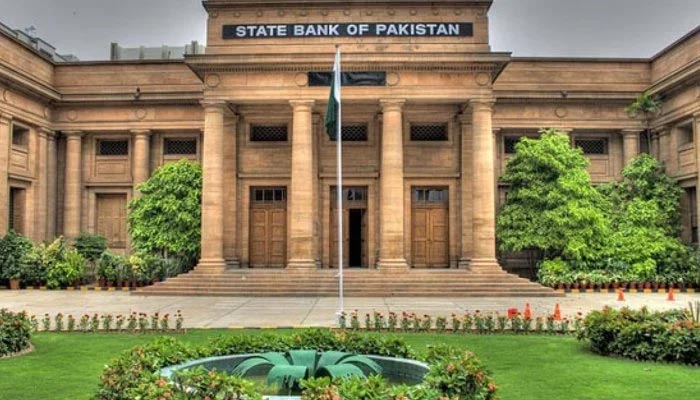State Bank's independence: Mere semantics
Politics dictate that central banks remain under the state’s control; no offering of grandstanding is going to change it
January 10, 2022

Pakistan is into its 23rd IMF programme, and the IMF has still not learned about the ineffectiveness of its conditions. The latest IMF condition concerns granting autonomy to the State Bank of Pakistan (SBP) as part of the revival of its loan.
International financial institutions (IFIs) have been pushing for the autonomy of the SBP since the 1990s, and yet the SBP is not autonomous and will never be – and it should not be. Central banks are under state control all over the world, particularly in developing countries. We have seen how central banks supported financial stimulus packages even in the developed world during the Covid-19 period.
Why should we try to make the SBP autonomous? There is some literature on it. Sakib Shirani has a paper on it in the Lahore Journal of Economics. Dr Ishrat Husain has written on SBP autonomy, and his work is available on his IBA page. The Pakistan Institute of Development Economics (PIDE) has conducted four webinars on SBP autonomy, and there are webinar reports on them. The Ministry of Finance has a note on the new SBP Autonomy Act amendments on its website.
All institutions need to support the government, and the SBP is no different. The central bank and the banking sector in Pakistan are under state control, and they will remain so despite the IMF semantics.
Raghuram Rajan tried to make the central bank of India autonomous in the recent past, and the Modi government showed him the door. Pakistan is no different. The IMF knows this pretty well. The question is: why are the IMF and the government of Pakistan going through the process then?
The SBP functions under the State Bank of Pakistan Act 1956 and was given autonomy in 1994 as part of the financial sector reforms. It was further augmented in 1997 by amending the State Bank of Pakistan Act, 1956, the Banks Nationalisation Act 1974, and the Banking Companies Ordinance 1962. Further changes were introduced in 2012 and 2015 to make the SBP autonomous. None of that gave the SBP de facto autonomy. What makes the IMF and the government think that the 2022 amendments will achieve what past efforts could not?
The government does not generate enough resources through taxes, and it needs to spend due to its electoral compulsions and for other reasons, so it needs to print money through the SBP and borrow from the banking sector. It will continue to do so whether or not the finance secretary has the right to vote in the new SBP setup.
If the central bank sticks to its narrow mandate of price stability and setting up the national monetary policy, the autonomy of the SBP can be discussed. However, in developing countries like Pakistan, the central banks can never function within their narrow mandates as they have to support the broader objectives of economic growth and employment generation, so the autonomy of the central bank is even more meaningless in this context.
Dr Ishrat Husain has explained this dilemma well: “The situation becomes more difficult in the developing countries where the role of the central bank encompasses multiple objectives such as growth, employment, financial inclusion in addition to price stability and financial stability. The successful pursuit of these objectives can take place only by a joint collaborative effort of the federal, provincial, local governments and the Central banks. Fiscal and monetary policy coordination, therefore, become critical in achieving the desired results.”
All those who desire to make the SBP insular from ‘political interference’ are not showing prudence. The problem is that the IMF neoliberal agenda considers ‘politics’ to be a dirty word. In reality, economics cannot be separated from politics in the developed or developing world. Politics dictate that central banks remain under the state’s control. No offering of grandstanding is going to change it.
Pakistan has managed its economy well under the Covid-19 pressures compared with many other countries. The SBP supported the government’s economic stimulus and social protection measures. That made the success of the government policies possible. The government’s reliance on the SBP is not going to change in the future, no matter what the IMF would like us to believe.
In one of PIDE’s webinars on SBP autonomy, a participant pointed out that the government needs to support growth and the focus should be on planning and implementing pro-growth policies. In addition, the government should focus on employment generation in the country. All institutions including the SBP should support the government in those efforts.
The de jure autonomy of the SBP should not lead to an institutional conflict. All efforts should lead to institutional harmonisation. This is why IMF policies in developing countries like Pakistan are so counterproductive.
Realpolitik dictates that the SBP remains under state control. It has always remained under the federal government’s wings, and it will always remain so in the foreseeable future – so will the banking sector. The IMF knows this. The IMF and the government are sticking to the decision of granting autonomy to the SBP to merely check the box. Faiz sahib rightly said more than forty years ago that Pakistan would continue to run exactly like it did in the past. So will the SBP. The rest is mere semantics.
The writer is an Islamabad-based social scientist. She can be reached at: [email protected]
Originally published in The News











